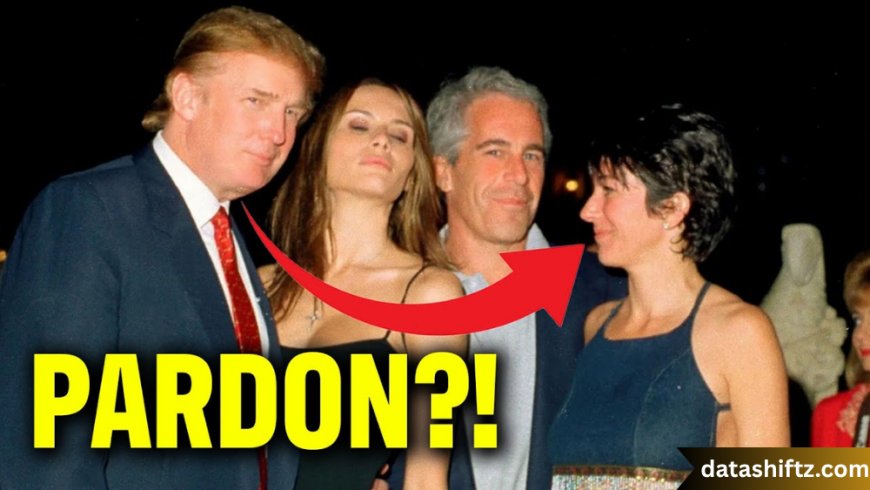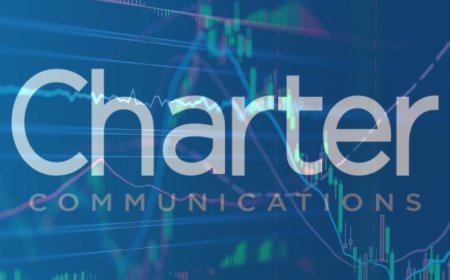Ghislaine Maxwell Pardon: A Deep Dive into the Possibility, Implications, and Controversy

Introduction
The name Ghislaine Maxwell has become synonymous with one of the most disturbing and high-profile criminal cases of the 21st century — the Jeffrey Epstein sex trafficking scandal. A British socialite and long-time associate of Epstein, Maxwell was convicted in 2021 of several federal charges related to the recruitment and abuse of underage girls. Since then, her imprisonment and legal appeals have generated intense media coverage, public debate, and speculation.
One of the most controversial and unlikely notions in circulation is the possibility of a presidential pardon for Ghislaine Maxwell. While such an idea remains hypothetical, it has sparked fiery discussions in political, legal, and public circles. Would a pardon be legally viable? What precedent would it set? What political risks would such a move entail?
This article explores the legal foundations, historical context, public opinion, and implications of a potential Ghislaine Maxwell pardon. We analyze facts, dispel rumors, and examine the far-reaching consequences that such an action could bring.
Who Is Ghislaine Maxwell?
Background and Biography
Ghislaine Maxwell was born in 1961 in Maisons-Laffitte, France. She is the daughter of media mogul Robert Maxwell, who died under mysterious circumstances in 1991. Educated at Oxford University, she moved to the United States and entered elite social circles.
By the 1990s, Maxwell had become closely associated with Jeffrey Epstein, a wealthy financier and convicted sex offender. Over the years, she allegedly helped Epstein manage his affairs and, more infamously, recruit underage girls for exploitation.
Criminal Charges and Conviction
In July 2020, Maxwell was arrested by the FBI and charged with six federal crimes, including:
-
Conspiracy to entice minors to travel for illegal sexual acts
-
Transportation of a minor with intent to engage in criminal sexual activity
-
Sex trafficking of minors
-
Perjury (in related depositions)
In December 2021, she was convicted on five of six charges and sentenced to 20 years in federal prison in 2022. She is currently serving her sentence at FCI Tallahassee.
Understanding the Presidential Pardon
What Is a Pardon?
A pardon is an act of clemency granted by the President of the United States that forgives a federal crime, restoring certain civil rights and removing penalties. It does not erase the conviction but absolves the individual of legal consequences.
Under Article II, Section 2 of the U.S. Constitution, the president has the power to:
-
Grant pardons for federal offenses
-
Issue commutations (reductions of sentences)
-
Grant reprieves or amnesties
Historical Context of Controversial Pardons
Over the years, U.S. presidents have issued many controversial pardons, including:
| President | Pardon Recipient | Reason for Controversy |
|---|---|---|
| Gerald Ford | Richard Nixon | Watergate Scandal |
| Bill Clinton | Marc Rich | Tax evasion; connections to Democratic donors |
| Donald Trump | Joe Arpaio, Roger Stone | Allegations of cronyism and abuse of power |
Ghislaine Maxwell Pardon – Legal and Political Analysis
Is a Maxwell Pardon Possible?
Legally speaking, a pardon for Ghislaine Maxwell is possible — since her convictions are federal crimes, a sitting president has the authority to issue a pardon at any time, even post-conviction.
However, this possibility is constrained by:
-
Public backlash
-
Political repercussions
-
Association with sexual crimes involving minors
Legal Steps in Pardon Consideration
-
Petition Submission – Typically initiated by the inmate or their lawyer
-
Review by Office of the Pardon Attorney (OPA) – Evaluation of case merit
-
Department of Justice Recommendation – Advisory input to the President
-
Presidential Decision – Final authority rests solely with the president
Could Maxwell Be Pardoned in the Future?
Hypothetically, a future U.S. president could issue such a pardon under extreme circumstances, such as:
-
A legal technicality overturning core parts of the case
-
Political alignment with individuals seeking clemency
-
Claims of miscarriage of justice, as her legal team insists
Still, any such move would ignite a firestorm of media, political, and public outrage.
Public Sentiment and Media Reactions
Public Opinion on the Possibility of a Pardon
Public opinion is overwhelmingly against the idea of pardoning Ghislaine Maxwell. Advocacy groups, legal experts, and the general population view her crimes as heinous, irredeemable, and deeply harmful to victims.
Recent Poll Results on Ghislaine Maxwell Pardon
| Question | Response (% Agree) |
|---|---|
| Do you believe Ghislaine Maxwell should be pardoned? | 8% |
| Should sex offenders be eligible for pardons? | 14% |
| Do you believe Maxwell received a fair trial? | 65% |
| Would a pardon reflect poorly on a president? | 89% |
Media Coverage and Commentary
Mainstream and independent media outlets have issued strong stances:
-
The New York Times: Called any potential pardon "a stain on justice."
-
Fox News: Highlighted political hypocrisy in selective clemency.
-
The Guardian: Warned against the normalization of elite impunity.
-
Twitter/X & Reddit: Trends overwhelmingly condemn the idea, using hashtags like #NoPardonForMaxwell.
Victim Impact and Survivor Responses
Survivor Testimonies
Victims of Epstein and Maxwell have expressed outrage at even the mention of a pardon. Many have testified publicly, urging the system to hold all enablers accountable.
Statements from survivors often highlight:
-
Lifelong trauma and psychological scars
-
Betrayal by the justice system if clemency is granted
-
Fears of setting a dangerous precedent
Advocacy Group Reactions
Organizations such as RAINN (Rape, Abuse & Incest National Network) and Time’s Up have issued statements:
“A pardon for Ghislaine Maxwell would be a betrayal to survivors everywhere. We urge leaders to stand firm for justice.”
Political Ramifications of a Pardon
How a Pardon Could Affect a Presidency
A president who pardons Maxwell risks:
-
Losing public trust
-
Fueling political opponents
-
Undermining rule-of-law credibility
It could become a campaign issue or a centerpiece in impeachment discussions, especially if it appears politically motivated or corrupt.
Political Fallout from Controversial Pardons
-
Protests and demonstrations
-
Investigations by Congress or DOJ
-
Global diplomatic backlash
-
Loss of voter base support
-
Media scrutiny and press condemnation
The Global Lens – How the World Views the Maxwell Case
International Coverage
Maxwell’s trial and imprisonment received international coverage in:
-
UK: Because of her citizenship and elite upbringing
-
France: Due to her birth and links to French society
-
Australia, Canada: Countries with strong Epstein-Maxwell connection threads
A pardon would trigger international diplomatic criticisms, especially from human rights watchdogs.
Implications for Global Human Trafficking Laws
Many experts argue that pardoning Maxwell could:
-
Undermine global anti-trafficking efforts
-
Provide "cover" for high-profile traffickers in other countries
-
Set a precedent where power and influence outweigh justice
Conclusion
The idea of a Ghislaine Maxwell pardon is not only legally possible but morally and politically combustible. It touches upon issues of privilege, justice, and societal values in an era increasingly focused on accountability and victim advocacy.
While no president has suggested such a pardon at this time, the mere speculation of it reveals the deep fractures in public trust toward legal systems, elite impunity, and political maneuvering. Maxwell’s crimes, conviction, and incarceration represent a small measure of justice in a case that still leaves many questions unanswered.
A pardon, in this context, would not merely be a legal act — it would be a national scandal, a cultural earthquake, and possibly a turning point in American political ethics.





























